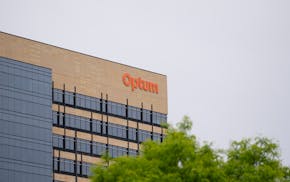On average, General Mills sold more than 1,400 boxes of cereal per minute at U.S. retailers over the past year. That was more than enough to retain the crown as the nation's top cereal producer ahead of rival Kellogg.
With $3.4 billion in sales over the past 12 months, according to data from Chicago-based market research firm Circana, General Mills now sells 31% of all cereal in stores around the country.
Yet that prime position has eroded in recent years as higher prices for cereal and just about everything else turn more consumers toward cheaper knockoffs.
All major cereal companies are losing market share to store brands and private labels, which now accounts for 9% of all cereal sold at retailers in the U.S., according to Circana. In 2021 generics had just a 5.6% market share. And upstarts like Purely Elizabeth and Seven Sundays are also growing, capitalizing on strong consumer spending on products with a health and wellness focus.
The cereal executives in Golden Valley know they can't take their hard-won leadership position for granted.
"We're the leader of the category. We have to behave like the leader," Dana McNabb, president of North American retail at General Mills, said during a call with analysts last week. "What we're learning is that when we get on our front foot and do what we're good at, we see growth."
That means partnering with the NFL's Kelce brothers for advertising and a new mashup cereal, keeping Chex stocked for holiday mixes and developing high-protein Cheerios, which will be released next month.
With a focus on value and "remarkability," McNabb said, "I think we will continue to see progress in our market share."
Cereal remains the single largest category for the company's U.S. retail business. Market research firm Jefferies pegs cereal at nearly 20% of domestic retail sales.
Selling more cereal, then, is essential. But it's no easy task. As the major sales boost during the pandemic fades and price increases have reached their limit, the industry is back to the pre-pandemic norm of steady decline or tepid growth at best.
Piper Sandler analyst Michael Lavery says General Mills is "focused on making the right adjustments to promotion to help hold and grow market share and remain competitive."
The company is already discounting products at its highest rate in five years, and General Mills expects to trade short-term profit growth to keep the deals coming in order to get in more homes and build long-term momentum.
'Flattish' growth is here
Honey Nut Cheerios remains the bestselling brand in the U.S., followed by Kellogg's Frosted Flakes and Honey Bunches of Oats from Lakeville-based Post Consumer Brands.
Compared with General Mills, cereal is even more important for Post, as it accounts for nearly half of its domestic retail sales.
Post Holdings CEO Rob Vitale told investors last month that cereal is returning to "flattish" growth, which is precisely what happened this year. Total retail cereal sales grew 0.2% through the 12 months ending Dec. 1, according to Circana, and that growth was driven by modest price increases. The actual number of boxes and bags of cereal sold declined 1.3%.
"We can't shrink our business to prosperity," Vitale said. "Our branded portfolio outperformed the category, and private label continued to grow."
Private label cereal grew 9% this year to a $1 billion business, a benefit to Post, which produces many store brand varieties.
Kellogg also sees "stable" cereal sales on the horizon. Last year the company split up into the cereal-focused W.K. Kellogg Co. and snack-focused Kellanova, maker of Pop-Tarts and Cheez-it crackers.
Compared with its Minnesota competitors, "all we do is think about cereal," Kellogg CEO Gary Pilnick said at an investor conference earlier this month.
Among the 10 top-selling cereal brands this year, most of which saw sales declines, Frosted Flakes grew the most, both in dollars and in units sold.
"Cereal is undefeated. We haven't lost a debate yet about where to invest our money because everything we do is about cereal," Pilnick said. "We know we'll drive the business."
Doing well at school
Retail store sales aren't the whole cereal story, however — General Mills and others sell tons of cereal to schools, hotels and other foodservice venues.
"Our market share in schools is more than twice what it is in retail," General Mills CEO Jeff Harmening said in an interview last week.
That gives Lucky Charms and other brands a dominant position with kids, building brand affinity from a young age. Which pays dividends down the line, as McNabb said nostalgia is a key strategy for connecting with cereal consumers.
Harmening said as more schools offer breakfast, they tend to go with General Mills for cereal.
"One of the reasons we've been able to be so successful is that we keep enhancing the nutritional profiles of our cereals," he said. "Our kids will be better off and better positioned to learn, and we do better, too, but so are the kids, and so we feel great about that."
Harmening said acting like the cereal leader means "delivering for consumers what they're looking for."
"I feel good about our cereal business, in both what you see at the grocery store every day and what we're selling through schools."

DOGE cuts federal money for upgrades at Velveeta plant in New Ulm

Minnesota factories strained by new steel tariffs and ensuing chaos
'We don't want to lose this mine': Fear sets in for Iron Range miners as shutdown takes hold

UnitedHealth sues the Guardian, alleging defamation in coverage of nursing home care

